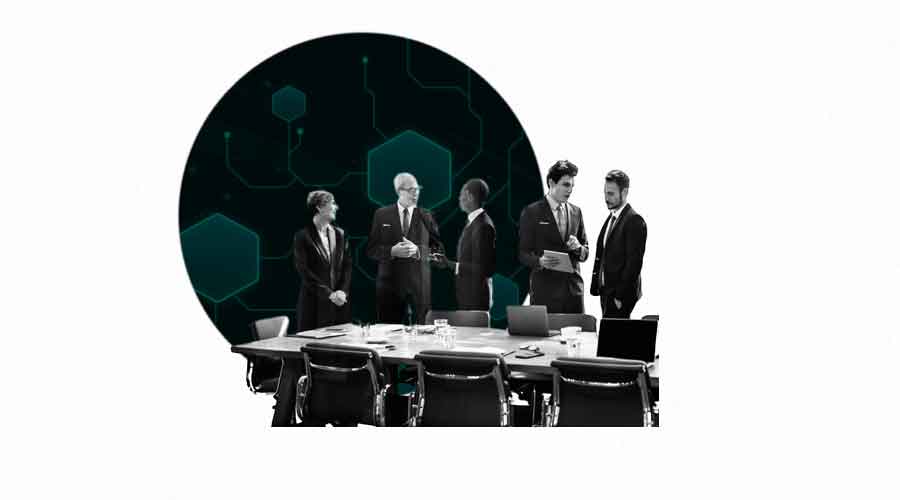 DAO Legal Challenges: Navigating Complexity in Decentralized Autonomous Organizations
DAO Legal Challenges: Navigating Complexity in Decentralized Autonomous Organizations
In the dynamic realm of decentralized autonomous organizations (DAOs), the promise of innovation is met with a labyrinth of legal challenges. As blockchain technology reshapes traditional organizational structures, DAOs operate autonomously, governed by smart contracts and community-driven decision-making. This article embarks on a journey to unveil the legal complexities surrounding DAOs, navigating through the uncharted waters of regulatory uncertainties, contractual ambiguities, and the unique governance dynamics inherent to decentralized entities. From grappling with cross-border legal challenges to addressing privacy concerns and smart contract vulnerabilities, DAOs stand at the intersection of innovation and legal evolution.
Definition and Functioning of DAOs:
DAOs are entities governed by smart contracts and code rather than traditional hierarchical structures. These decentralized entities execute actions based on predefined rules, and decision-making is often determined by token holders through voting mechanisms. The absence of a central authority raises questions about legal accountability, contractual relationships, and regulatory compliance.
Regulatory Uncertainty:
One of the foremost challenges facing DAOs is the lack of clear regulatory frameworks. Traditional legal structures struggle to accommodate entities that operate without a central governing body. Regulatory bodies globally are grappling with defining the legal status of DAOs, leading to uncertainty regarding their classification and the applicable regulatory requirements.
Legal Identity and Personhood:
Traditional legal systems rely on the concept of legal identity and personhood, attributes that DAOs, by design, lack. Establishing legal accountability, entering into contracts, and holding assets in the name of a DAO become intricate issues when the entity itself doesn’t have a legal persona. Legal frameworks may need to evolve to recognize and accommodate the unique nature of DAOs.
Contractual Ambiguities:
DAOs operate through smart contracts, which are self-executing agreements with code-based rules. However, the immutability of smart contracts can lead to challenges when disputes arise. The lack of traditional legal remedies for contractual ambiguities in code poses challenges in resolving disputes and enforcing contractual obligations.
Token Governance and Securities Regulations:
Many DAOs rely on token-based governance, where token holders participate in decision-making processes. However, this governance model often raises concerns about potential categorization as securities, triggering regulatory scrutiny. Striking a balance between effective token-based governance and compliance with securities regulations becomes crucial for DAOs seeking to avoid legal pitfalls.
Cross-Border Legal Challenges:
The borderless nature of blockchain technology and DAOs introduces challenges related to cross-border legal jurisdictions. Different countries may interpret and apply existing laws differently, leading to potential conflicts and legal uncertainties. DAOs need to navigate these cross-border challenges to ensure compliance with diverse regulatory environments.
Smart Contract Vulnerabilities and Code Liability:
While smart contracts provide automation and transparency, they are not immune to vulnerabilities. Exploitable bugs or vulnerabilities in the code can lead to unintended consequences, financial losses, or legal disputes. Determining liability for code-based errors and vulnerabilities is a complex legal challenge that requires a nuanced understanding of technology and law.
Privacy and Data Protection Concerns:
DAOs often involve the collection and processing of data, raising privacy and data protection concerns. Compliance with evolving data protection regulations, such as GDPR, becomes essential. DAOs must navigate the legal landscape to ensure the responsible handling of user data and mitigate the risk of regulatory actions related to privacy violations.
Taxation and Financial Regulations:
Taxation of DAO activities and compliance with financial regulations present additional legal challenges. Determining the tax implications of DAO transactions and addressing concerns related to anti-money laundering (AML) and know-your-customer (KYC) regulations require careful consideration. Collaborating with tax authorities and financial regulators is essential for DAOs to operate within legal bounds.
Governance and Community Dynamics:
The decentralized nature of DAOs often leads to fluid governance structures and community-driven decision-making. While this model fosters inclusivity, it can also result in governance disputes and challenges. Developing legal frameworks that accommodate dynamic governance structures while providing mechanisms for conflict resolution becomes imperative.




